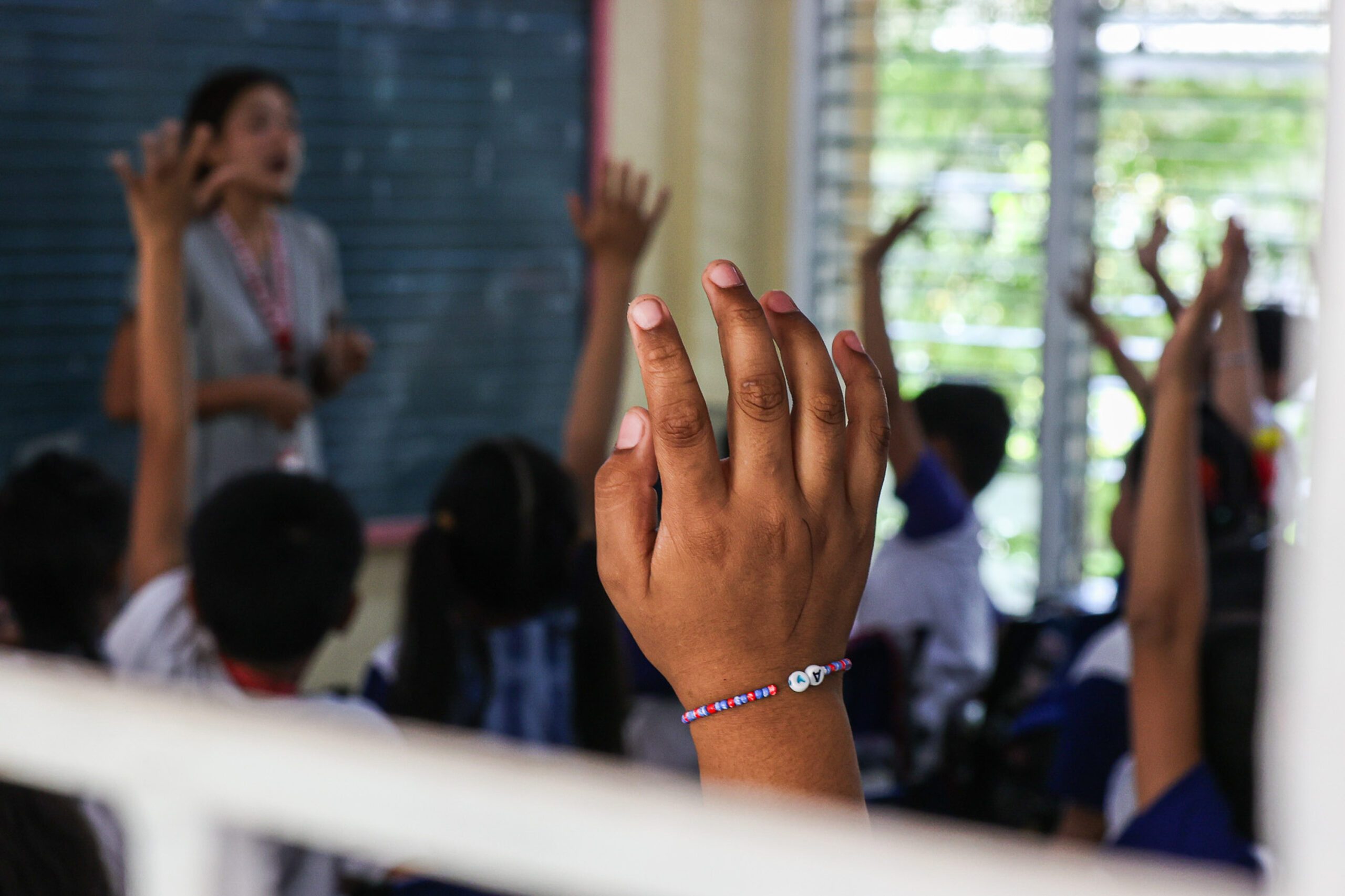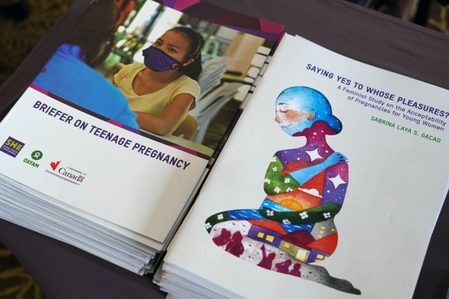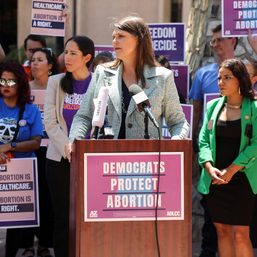SUMMARY
This is AI generated summarization, which may have errors. For context, always refer to the full article.

With adolescent pregnancies still on the rise in the Philippines, the government agency on children’s welfare and the secretariat of an organization of lawmakers think the Department of Education (DepEd) hasn’t been doing well in educating kids about their sexuality.
In a media conference on World Population Day, Thursday, July 11, various groups and government agencies called on lawmakers anew to pass the bill seeking to institutionalize a multi-agency program that would prevent adolescent pregnancies in the country and support teen parents.
This call isn’t new – advocates have called for the bill’s passage for years. And even if former president Rodrigo Duterte declared adolescent pregnancy prevention a national priority in 2021, latest Philippine Statistics Authority numbers found that live births among girls aged 19 and below increased by 10.2% from 2021 to 2022.
Over 150,000 girls aged 10 to 19 gave birth in 2022 – around 3,000 of them under 15.
The culprit? The DepEd has yet to effectively roll out comprehensive sexuality education (CSE), a mandate it has had for over 10 years, the agency and organization believe.

When the reproductive health (RH) law was passed in December 2012, it tasked the DepEd to formulate a curriculum for age- and development-appropriate reproductive health education, which should be used by public schools. In July 2018, the DepEd released its policy guidelines on the implementation of CSE.
The DepEd’s CSE core topics include human body and human development, personhood, healthy relationships, sexuality and sexual behaviors, sexual and reproductive health, personal safety, and gender, culture and human rights. These are spread throughout the K to 12 curriculum across various subjects.
“DepEd has always been saying there is already CSE as part of their curriculum. But if you ask the students themselves, sinasabi nila wala (they say they don’t hear of it),” said Normina Mojica, policy, planning and research chief of the Council for the Welfare of Children (CWC) in the Thursday press conference.
Mojica said that teachers “have difficulty touching on” matters like sexuality, which is sometimes still equated to matters on sexual intercourse exclusively.
In other words, teachers might be apprehensive about teaching CSE because of a belief that they are teaching kids to have sex. (That’s wrong – some of the basic lessons in CSE among the younger levels include simply knowing what “good touch” and “bad touch” is.)
“May iba na teachers naman na kaya nilang bitbitin. Kaya nilang i-discuss sa klase nila. Pero kasi alam ‘nyo, majority pa rin ng teachers hindi naman ganun ka-progresibo (There are teachers who are able to discuss it in their classes. But you know, majority of our teachers are not that progressive),” said Mojica.
The CWC official said that when children do not get this information from school, they turn to other sources of information, like social media. But this carries the risk of kids getting information that isn’t appropriate for them, she said.
“We need to help more people become more open-minded to talk about comprehensive sexuality,” she said in Filipino.
Meanwhile, according to Philippine Legislators’ Committee on Population and Development (PLCPD) executive director Romeo Dongeto, DepEd did not see it as a priority.
“After the curriculum was developed, the DepEd should have rolled out a comprehensive training for teachers for the program to be uniform. Even our teachers need to understand what our children’s rights are when it comes to their sexuality,” Dongeto said in a mix of English and Filipino.
“Doon po nagkulang ang ating pamahalaan (That’s where our government fell short),” he said, adding that the Philippines has yet to have a “programmatic, sustained” CSE.
Apart from CSE, Dongeto also said that the distribution of sexual and reproductive health services is still not uniform in all areas of the country.
The CWC is an attached agency of the Department of Social Welfare and Development (DSWD), while the PLCPD is an organization of lawmakers in the Senate and House pushing forward policies on population and human development.
‘Cultural concerns’
In a message to Rappler on Friday, July 12, Education Assistant Secretary Dexter Galban said the department has noted how some teachers remain uncomfortable discussing CSE because of “cultural concerns and personal beliefs.”
“Non-teaching of critical parts of the curriculum will definitely have consequences as enabled by existing performance evaluation standards. However, teachers also have the flexibility to conduct their classes without compromising the core components of the subject matter,” Galban said, adding that he still needed to confirm if there are reports of teachers not implementing CSE at all.
Galban said that there was an opportunity to invest more in teacher training, and look into teachers’ comfort level in teaching CSE, especially during latter years like Grades 10 to 12 where more sensitive topics come in.
But apart from looking at issues among teachers, Galban highlighted the importance of looking at what parents and guardians teach their children as well.
“There needs to be harmony in what is being taught in school and what is being reinforced at home. Any clash or lack of congruence at home may lead to confusion among learners,” he said.
He also echoed Mojica’s concern on unregulated online spaces, with adults facing the challenge of protecting kids from “potentially dangerous content and portrayals of sex and reproductive health in the digital scene.”
Some programs the DepEd has in place to enhance its enhanced Matatag-curriculum CSE include reactivating school-based “teen centers” that house resources on CSE and reproductive health, and creating the iChoose platform, a one-stop shop for online resources, in partnership with the Department of Health and the United States Agency for International Development.
The DepEd also has “alternative delivery modes” for students who get pregnant but still want to continue their studies.
“As the challenges of teen pregnancy, which I believe should be called child pregnancy as everyone under 18 is still a child by definition in Philippine law, go beyond education, there is a need to invest in cross-cutting interventions,” said Galban.
According to the United Nations Population Fund, when young girls get pregnant, they face high risks of health complications, and are sometimes forced to stop schooling. This may also trigger an intergenerational cycle of poverty in the family.
The Commission on Population and Development has said that the Philippine economy loses billions to the adolescent pregnancy phenomenon in the country. – Rappler.com
Add a comment
How does this make you feel?





There are no comments yet. Add your comment to start the conversation.